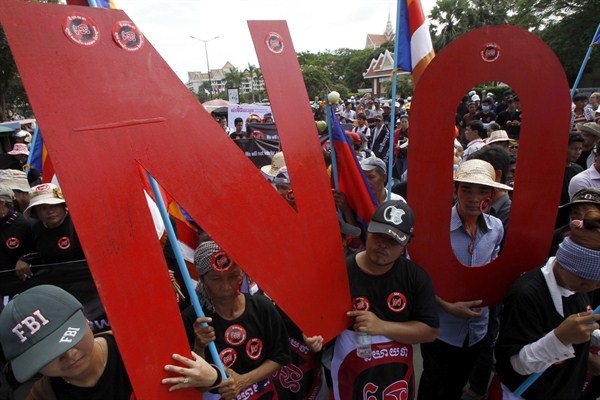In a long anticipated move, late last month Cambodia’s Senate passed a controversial law that critics claim severely endangers the autonomy of foreign and local nongovernmental organizations in the country. The pushback from civil society and foreign governments has been strong, but hopes that it might be recalled were extinguished when Cambodian King Norodom Sihamoni signed the draft legislation officially into law earlier this month. But the law is merely the latest in an alarming spate of efforts by authoritarian and nationalist governments to reduce the reach of NGOs working across Asia.
In China, two proposed draft laws that would mandate NGOs acquire official sponsorship through a state office have been stirring up concerns among activists over the past year. NGOs in China, around 6,000 according to some estimates, have already reported intensified pressure from authorities on their activities and freedom to operate. Last fall Laos installed similar restrictions, placing NGOs under the supervision of the Ministry of Foreign Affairs, as well as installing limits on the amount of funding groups could take in from abroad and the kind of work they could do.
In India, the Home Ministry recently terminated the licenses of nearly 9,000 NGOs, including the environmental watchdog Greenpeace, and has denied entry visas for several prominent foreign activists. In June, Pakistan shut down Save the Children and ordered its foreign staffers to exit the country within 15 days. Taking their cues from Russia, Kyrgyzstan and Tajikistan are preparing legislation that would require NGOs to register as “foreign agents.”

